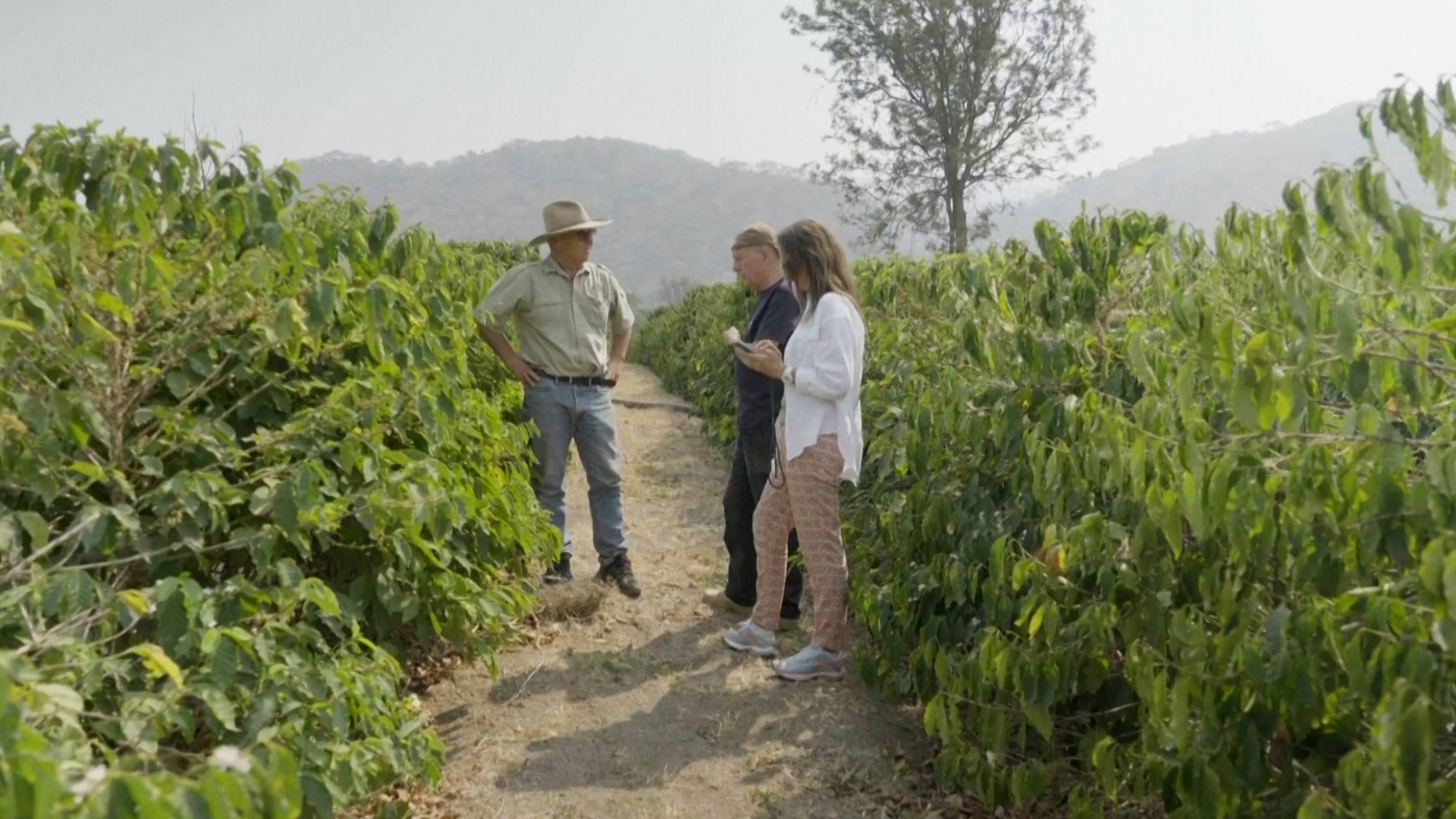This shoe could help rewild cities

A design graduate from Central Saint Martins has created a pair of trainers that help in rewilding the cities. Image: Pexels/Pixabay

Get involved with our crowdsourced digital platform to deliver impact at scale
Stay up to date:
Nature and Biodiversity
- A design graduate from Central Saint Martins has created a pair of trainers that could help rewild the cities.
- The shoes are called "Rewild the Run" and they have a bristly outsole that is covered in tiny hooks.
- The designer, Kiki Grammatopoulos, says she wants to use the shoes to encourage people to get involved in rewilding.
- The shoes are still in the prototype stage, but Grammatopoulos hopes to bring them to market soon.
Central Saint Martins graduate Kiki Grammatopoulos has created a chunky, bristly running shoe outsole that helps to spread plants and seeds in cities as part of a project she's titled Rewild the Run.
Grammatopoulos used biomimicry in the project, borrowing elements from nature to create her sneaker outsole, which is densely covered in tiny hooks that grip onto dirt and plant matter as the wearer treads.
The hooks allow the shoes to mimic the phenomenon of epizoochory, where seeds are transported by becoming attached to an animal's fur.

Grammatopoulos looked mainly to two plants for her design: the cocklebur, which produces typical burr seeds, and the grapple plant, whose fruit is covered in small barbs.
The designer said she wanted to use fashion and sport to engage individuals with the cause of rewilding, and through that to encourage a wider rethink about our relationship with nature.
Rewilding is a form of ecological restoration that focuses on expanding woodlands and allowing nature to take its course with minimum human interference.

"I wanted to explore our relationship, or lack thereof, with the wild in our cities, and how these urban environments would look if ecology and biodiversity took over — some of which we saw over Covid-19," Grammatopoulos told Dezeen.
"Our awareness of natural systems is frail, particularly in cities, even while being fundamental to humanity's ongoing existence."
"For there to be any hope in positively evolving our cities to be able to support and encourage the existence of both human and non-human species requires a set of processes that get everyone involved in a radical transformation."

As well as seeds, Grammatopoulos' outsole design nods to another element from her research — the role in rewilding played by "keystone species".
Keystone species are those that have an outsized role in holding their ecosystem together, and when it comes to restoring nature in the UK and Europe, one of these is regarded to be the bison, which is now being reintroduced in areas after a century of extinction.
The outsoles' chunky appearance and cloven tread are a homage to bison hoofs and the animal's role in promoting the movement of other species by stamping pathways through the forest.
"Unfortunately, it wasn't possible to introduce bison to King's Cross, so I continued to explore how the public could emulate these keystone species' intricacies instead through product design," said Grammatopoulos.

"Ultimately, I believe we don't just need our cities to be wild, we need to be a little wild ourselves," she continued.
Grammatopoulos created Rewild the Run in her Material Futures masters course at London university Central Saint Martins. The design is intended to be a conceptual representation of what future rewilding footwear could look like — not the final product.
Her demonstration prototype was modelled to fit over a standard New Balance trail running shoe, and 3D printed in nylon polymer.

Ideally, Grammatopoulos would like the product to be 3D printed or injection-moulded in a performance rubber in the future, if she can find a manufacturing partner.
Currently, she is testing her designs with the London-based running community Run the Boroughs, which she says is allowing her to observe the effectiveness of sport as a vehicle to rewild urban environments.
Rewilding is growing in popularity as an approach to tackling climate change and biodiversity loss. Writing for Dezeen, architect Christina Monteiro called for a strategy to rewild cities to create a better environment for children and designer Sebastian Cox has rewilded a golf course in south London.
Don't miss any update on this topic
Create a free account and access your personalized content collection with our latest publications and analyses.
License and Republishing
World Economic Forum articles may be republished in accordance with the Creative Commons Attribution-NonCommercial-NoDerivatives 4.0 International Public License, and in accordance with our Terms of Use.
The views expressed in this article are those of the author alone and not the World Economic Forum.
The Agenda Weekly
A weekly update of the most important issues driving the global agenda
You can unsubscribe at any time using the link in our emails. For more details, review our privacy policy.
More on Nature and BiodiversitySee all
Lena McKnight and Stefan Fahrni
May 2, 2024
Cristen Hemingway Jaynes
April 30, 2024
Robin Pomeroy and Linda Lacina
April 29, 2024
Greg Goodwin and John Stackhouse
April 29, 2024






